KLONDIKE, CP Army Headquarters, Sidie’s Desk – A community based on conflict and competition naturally results in rivalry between groups, sometimes friendly and more frequently bitter. Yet, as someone hardened by the fanatical language of pre-CPPS armies, something feels missing. It is an observation of mine that zealotry in armies has faded away, and is that a bad thing?
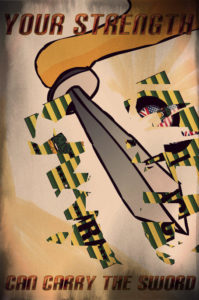
What is “Zealotry”?
Zealotry, or fanaticism, is defined in the Oxford Dictionary as the “fanatical and uncompromising pursuit of religious, political, or other ideals”. In the real world it could take form within populist politicians or even climate change activism. In the broadest sense, zealotry is an intense drive to achieve goals based on your own beliefs, whether the beliefs are reinforced by fact or not. Though this definition might seem a bit extreme to be applied within the realms of Club Penguin Armies there once was a time in which fanatical language and behavior, motivated by burning hatred between armies among other things, was the norm. It was not always the case that the community collectively laughed at figures such as Lord Pain for ridiculously loaded statements.
Case Study: Black Alliance vs. Army of Club Penguin
In the year of 2011 the Black Alliance was formed. Not to be confused with the Black Ice Alliance of recent years, the conglomerate consisted of notable armies such as the Light Troops, Pirates, and Special Weapons and Tactics among others. Formed out of a burning hatred of the Army of Club Penguin, the Black Alliance portrayed them as having unrelenting dominance over the community. The alliance went through many phases and marginal shifts in ideology from 2011 to 2013, with some factions seeking only the end of ACP’s reign at the top, while others sought the complete eradication of the Army of Club Penguin entirely. Relevant advocates for the latter sentiments included figures such as Waterkid101 (Riley), Ioioluk, Lord Pain and Proditor. These goals were portrayed in a post by the Pirates army published by Pongo in December of 2012, stating the following:
This is also a warning to the ACP. No matter how many allies you have, we will make sure the Army of Club Penguin will suffer in all possible ways. We will make sure you will be left crushed. We will make sure your troops will have no hope in your army. We will make sure you are on the verge of dying, heck, you might even be so close to death even Camplazlo will join us. You may be laughing at us while you’re reading this, but in a month or so, The Black Alliance will be having the last laugh.
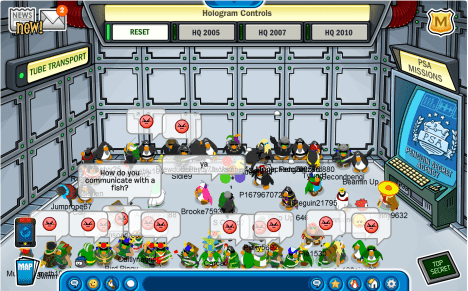
Black Alliance vs Army of Club Penguin: Battle of Iceland (2011)
Such a statement in today’s age would result in unceasing copypastas and mockery, yet this was norm in pre-CPPS armies. The early years of the 2010s saw frequent wars between the Black Alliance and the Army of Club Penguin. Though more frequent from those who were anti-ACP, both sides utilizing strong language with extreme implications of the enemy. In a post written in 2013 by Kingfunks4, the ACP Commander stated:
They want to take us down because we are powerful and overpowering. We’ve stood up to the Black Alliance because they are ruining warfare, creating wars which is causing problems to our community. […] The Pirates are killing our community and we must remove them, if that means that we have to get rid of their allies we will as well.
We will get rid of the dictator that is known as Waterkid. He is an embarrassment to the CP Army community with his racist comments and unfair actions. The Pirate troops have been brainwashed, they believe that he is right and they think he is a “God”. Everyone knows this, but people still back him because they are afraid […] We WILL crush those who try to destroy us, one way or another.
In a community filled with children and young adults it may seem comical that we could apply such intense passion and language to penguin wars. These gestures were tactics employed by armies, consciously or subconsciously, to arouse feelings of emotion or passion within their ranks. It didn’t matter that many of the claims made from these armies were unverified, extreme or outright lies. The goal was to bring about strong feelings, whether it be anger, righteousness or pride. I still remember my 12-year-old self becoming enraptured by the vitriol of the Light Troops. As hilarious as it may sound I genuinely believed that the Army of Club Penguin were a force of evil, feeling as though my participation in the Black Alliance was a just and moral act. It excited me and arguably led to my increased involvement in armies. I’m sure this was the case for many other individuals in armies at the time.
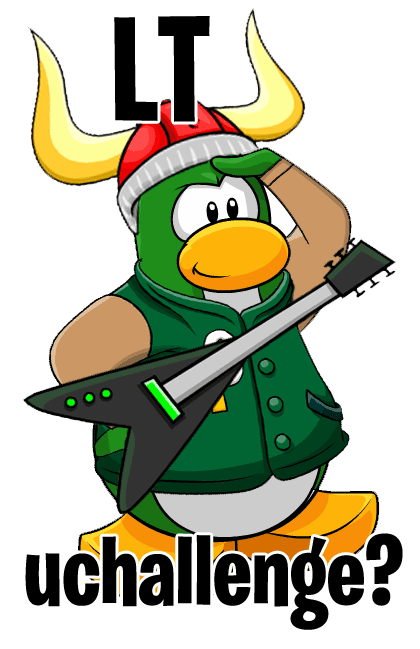
This is only a microcosm of zealotry and fanaticism in Club Penguin Armies. Former Rebel Penguin Federation leader Lord Pain rose to fame due to his uniquely intense disdain for the Army of Club Penguin, culminating in the aptly named Pain Wars in 2016. It should also be noted that such ideologically-based vigor was not free from ridicule at the time, exemplified in a satirical post on Club Penguin Army Central by Kenneth1000. However such mockery was a far more infrequent occurrence than in recent years.
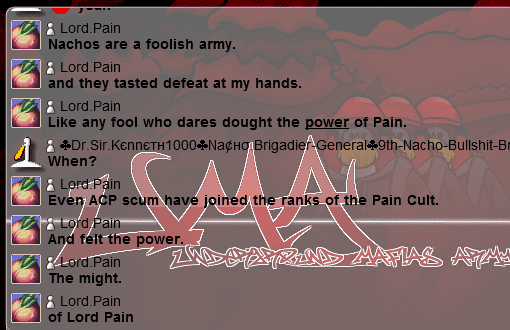
Furthermore, it goes without stating that fanaticism within armies was not limited to those for and against the Army of Club Penguin, with armies like the Doritos and Nachos perpetuating ideological stances within posts and in XAT chatrooms. Yet despite a presence in the armies of old, where have the fanatics gone?
Conflict in CPPS Armies: Where is the Zealotry?
As a long time member of the army community (please save me) the contrast between the attitudes of old as opposed to today is black and white. While one would be right to argue that bitter rivalry is still present in the CPPS army community, there has been an evident lack of the ideological zeal present in our community’s history. One of the most notable wars of the CPPS era was the infamous World War Rewritten which ravaged the community in April of 2020. The Rebel Penguin Federation was pitted against the Army of Club Penguin in a conflict of grand scale, despite its short length. The two armies wrote posts back and forth with many claims made about their opposition. These posts, however, were without the intense militancy exhibited in the past, instead favoring to more clinically deconstruct their justifications. This is exhibited in RPF’s declaration of war written by Ultipenguinj, which writes:
Having read ACP’s response post, it’s been made very clear that “friendly trash-talking” isn’t what happened in those chats. In this post, I’ll cover all of the biggest takeaways from the ones above, as well as the course of action that will be taken because of it. […]
The post serves as a method of justifying what was found instead of actively making strides to improve. A history of trolling in no way makes up for racially insensitive or genocidal comments. “All armies [inflating] their sizes” does not make up for not holding yourself to a higher standard, especially when it’s because “RPF could get away with it.”
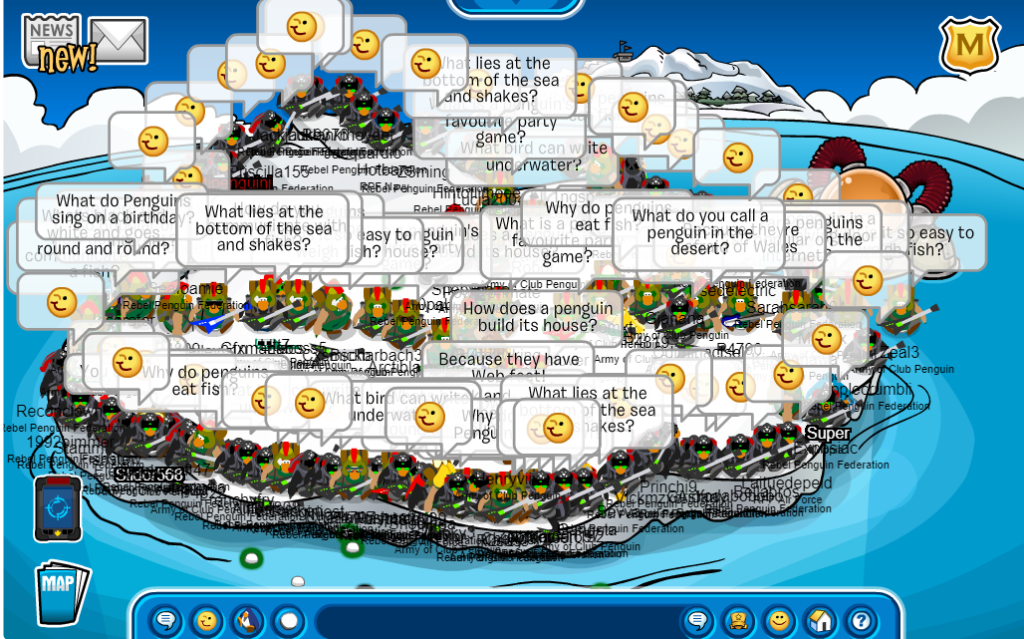
Rebel Penguin Federation vs. Army of Club Penguin: Battle of Mammoth (2020)
The excerpt above indicates a greater tendency to more reasonably justify the actions taken, with the post being dividing into subsections describing their reasons for war in depth. From an impartial perspective it seems clear that the language and content of such a post is more clinical and logically-based rather than relying on a ideological zealotry. These attitudes were mimicked in a response to the war declaration on the ACP website written by CSY, in which he carefully dissected the points made by the Rebels and provided reasoning for their perspective and side of the conflict, opting to use screenshot evidence as a means to justify their stance
I will address everything here, to show the community that the declared reasons were completely unwarranted, and RPF declared war simply, to pick on a smaller army. […]
The reasons of declaration of war are weak at best, and completely exaggerated at worse. The only valid argument is perhaps the “trash-talk” made against RPF, which were, unfortunately, instigated by ex-RPF. What’s happening there such that their ex members bear so much hatred to somewhere they once called home?
A quick glance at CSY’s post further reinforces a tendency toward attempting a far more rational process of justification than we had done in years before. The zealotry of the past in army community conflicts has seemingly, for the most part, been phased out with an increased emphasis on analysis and reason instead. Zealotry has not been completely lost, with individuals such as Xing and his Templars making use of language and ideology akin to the armies of the Black Alliance, as demonstrated in a recent declaration of war against the Ice Warriors, though such practice is far more rare in the mainstream. In addition, the previously referenced Lord Pain continues to spread his anti-ACP beliefs in posts and Discord groups. This, however, is almost universally mocked by the army community and consequentially ridiculed by most, seen best when Pain was honored with the “Brightest Bulb” award at the CPAHQ Night of Debauchery in 2021.
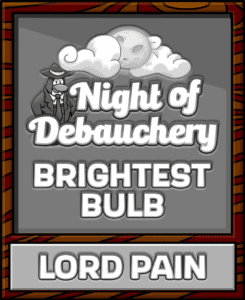
Lord Pain’s prestigious “Brightest Bulb” award.
Conclusion: Was the Zealotry Good or Bad?
I’ve been a witness to both ends of the spectrum of attitudes in war. I’ve seen some reluctantly agree with the likes of Lord Pain in regards to the belief that the loss of extreme passion has been a detriment to the army community, while many would vehemently disagree with such an assertion. A clear glance at the performance of armies in both eras vary with great peaks and lows, with armies in 2013 witnessing a golden age and the year of 2020 being one the community’s high points. The impact of these practices in war are extremely hard to measure objectively as the performance of armies during these times could potentially be attributed to other factors.
While I lean marginally towards the side of fanaticism/passion being something we should have a bit more of in armies, the biggest question on my mind is whether or not it impacted the fun and engagement experienced by those in the community, and to that I can’t give a precise answer. As an individual a part of me reminisces the passion of old yet I am thankful that I no longer have to experience the far more extreme toxicity that came with it. As our community evolves our attitudes and practices adapt with it, only time will tell how we progress as a collective.